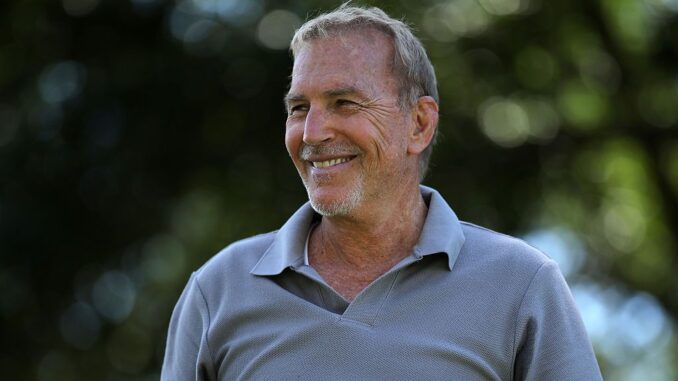
The King’s Gambit and the Shifting Sands of Yellowstone: A Kingdom Divided
The sprawling, cinematic grandeur of Yellowstone has, for years, epitomized the rugged spirit of the American West, drawing millions into the high-stakes, dust-laden world of the Dutton family. Its success, a modern-day Western phenomenon, seemed as immutable as the Montana mountains it showcased. Yet, beneath the sweeping vistas and a narrative steeped in the fight for land and legacy, a very human drama unfolded – one that has brought the mighty engine of the show to a grinding halt, pushing its anticipated 2024 return into the distant haze of 2025. At the heart of this disruption lies Kevin Costner, the stoic patriarch John Dutton III, and the bitter echoes of behind-the-scenes conflict.
Kevin Costner, a name synonymous with American epic, entered the world of Yellowstone not just as an actor, but as an institution. His filmography, etched with the triumphs of Dances with Wolves, Field of Dreams, and The Untouchables, imbued his portrayal of John Dutton with a gravitas no other actor could replicate. He wasn’t merely playing a character; he was the embodiment of a dying breed, a land baron whose weathered face told stories of generations fought and won. For many viewers, Costner was Yellowstone, the unyielding anchor in a maelstrom of familial betrayal, political machinations, and breathtaking violence. His presence was not just a plot device; it was the very soil in which the show’s roots were planted, deep and unshakeable.
But even kings, in their dominion, must contend with their own ambitions, and the whispers of discord began to ripple through the show’s formidable production. Initial murmurs hinted at scheduling conflicts, with Costner’s burgeoning passion project, the multi-part Western epic Horizon, demanding an increasingly significant chunk of his time and focus. What began as a minor scheduling dance soon escalated into a full-blown tug-of-war. Reports emerged of Costner’s reluctance to commit to the extensive shooting schedules required by Yellowstone, a show known for its demanding, location-heavy production. The tightrope walk between a star’s personal creative endeavors and a network’s multi-million dollar flagship series became a chasm, widening with each passing day.
The illustrative nature of this conflict lies in its stark reflection of the show’s own narrative. The Dutton family, perpetually warring over the very land beneath their feet, finds its real-world counterpart in the battle over time and creative control. Costner, much like John Dutton, has proven himself a man of unwavering vision, unwilling to compromise on his own cinematic legacy. This steadfastness, admirable in an artist, became the friction point against the intricate, high-pressure machinery of a television phenomenon. The result was not merely a disagreement; it was a fundamental clash of wills, a tempest brewing in the quiet, majestic valleys of Montana, invisible to the camera but deeply felt by the hundreds of crew members and millions of fans.
The impact of this behind-the-scenes tempest manifested in the most concrete way: the official delay of the much-anticipated final episodes from 2024 to 2025. This wasn’t just a minor reshuffle; it was a seismic shift, signaling the profound disruption caused by the unresolved tensions. For the legions of dedicated fans, it was a collective groan of frustration, a year-long suspension in amber, leaving them to wonder about the fate of the Duttons, and, more pointedly, the fate of John Dutton himself. How would the show write out its central figure, a character so integral to its DNA, without feeling like a betrayal? The delay became a glaring symbol of a kingdom divided, where the very foundation of the narrative had been shaken by the human element behind the curtain.
Ultimately, the delay of Yellowstone to 2025, sparked by the very public conflict between its star, Kevin Costner, and the show’s production, serves as a powerful illustration of the fragile ecosystem of creative enterprises. Even the most successful, seemingly impenetrable franchises are vulnerable to the human element – the ambition, the ego, the scheduling complexities, and the fundamental differences in creative vision that can arise even among the most talented individuals. The sweeping vistas of the Dutton ranch remain, but the dust of this very real conflict has settled over them, leaving a lingering question: Can a kingdom, however vast and beloved, truly endure when its king chooses a different path, and its future is suspended in the uncertain air of delay? The answer, like the unpredictable Montana weather, remains to be seen.
